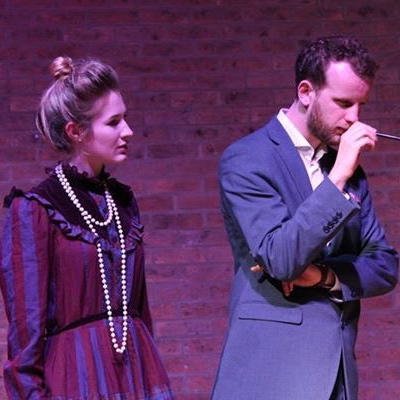 DISCUSSION: John Dante Prevedini leads a discussion about Composers, individuals or collective?, including contributions from David Arditti, Halida Dinova, Robert McCarney and Jane Stanley.
DISCUSSION: John Dante Prevedini leads a discussion about Composers, individuals or collective?, including contributions from David Arditti, Halida Dinova, Robert McCarney and Jane Stanley.
Slavonic Dances
Antonín Dvořák wrote two sets of Slavonic Dances, Op 46 (1878) and Op 72 (1886), modelled on Brahms' Hungarian Dances. There are eight dances in each set. Originally for four hands at two pianos, the dances quickly became popular. The first set made Dvořák's reputation, and were orchestrated soon after completion, at the request of the composer's publisher Simrock.
The original melodies are Dvořák's own, but the rhythms are characteristic of Slavic dance tunes - the Furiant (rapid and fiery in 2/4 and 3/4 with shifting accents, from Bohemia), Dumka (gently plodding and dreamy), Polka (lively, in 2/4 time), Sousedská (slow, swaying dance in 3 time), Skočná (fast, usually in 2), Odzemek (fast, with an improvised feel), Špacírka (fastish, in 2), Polonaise (3/4 time, originally from Poland) and Kolo (fast Serbo-Croatian dance in 2).
A selection of articles about Slavonic Dances
Dvořák and Brahms - George Colerick explores the folk music and other connections between Antonín Dvořák and his friend Johannes Brahms
Ensemble. Not Quite Christmas - Mike Wheeler listens to the Derby Concert Orchestra
Ensemble. Tremendous Justice - Brahms' German Requiem and Dvorák's Slavonic Dances from Peter Nardone and the Worcester Festival Choral Society, reviewed by Lucas Ball
CD Spotlight. Moods and Textures - Dvorák's Slavonic Dances played by the Czech Philharmonic, recommended by Geoff Pearce. 'There is balance and lightness here, not achieved by many other orchestras.'
Ensemble. Delightfully Engaging - Alison Balsom plays Hummel's Trumpet Concerto, heard by Mike Wheeler
Plenty of Atmosphere - A festive concert from the Derby Concert Orchestra, reviewed by Mike Wheeler
Ensemble. Zip and Sparkle? - The Munich Symphony Orchestra on tour, reviewed by Mike Wheeler



